Core Team
The CORE Project unites almost 30 scholars from Latin America and beyond, and covers 16 different jurisdictions, including the Inter-American Court of Human Rights and the Commonwealth Caribbean region, with the Judicial Committee of the Privy Council and the Caribbean Court of Justice
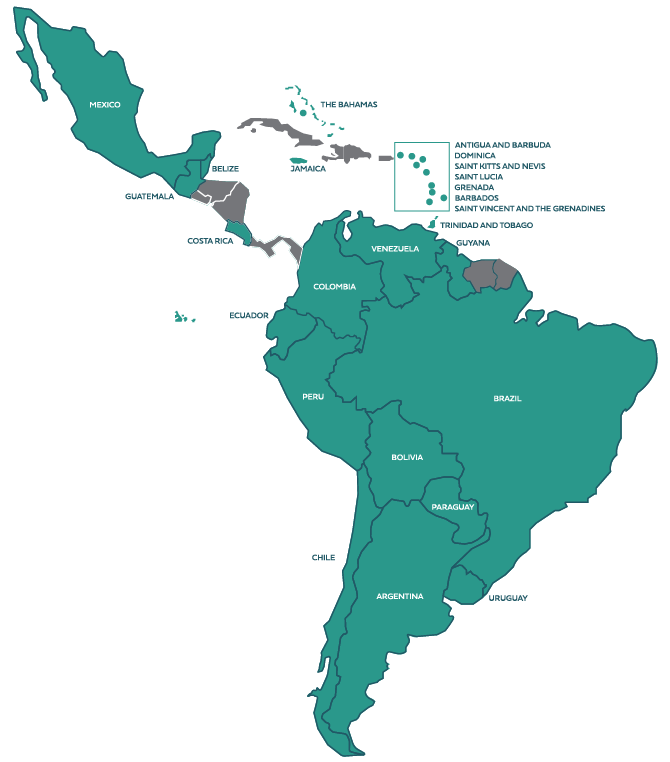
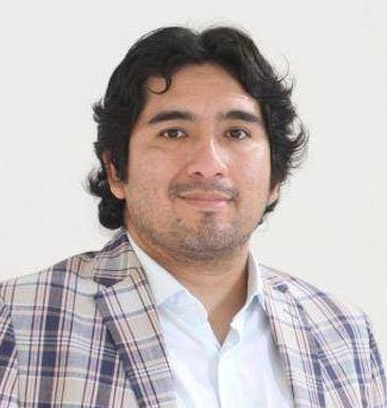
Carlos Meléndez
Carlos Meléndez holds a Ph.D. in Political Science from University of Notre Dame (Indiana, United States). He is an associate researcher at Instituto de Ciencias Sociales de la Universidad Diego Portales (Chile). His main research interests are: partisanships and political parties in Latin America, clientelism and political coercion, and political reform. Part of his work has been published in American Journal of Political Science, Party Politics, Journal of Politics in Latin America, among others.
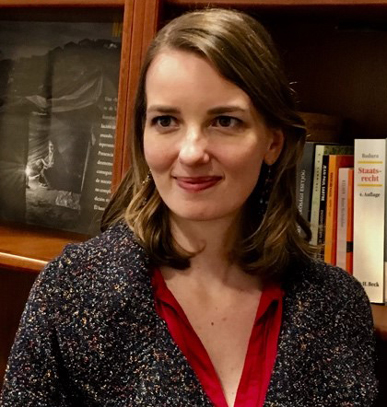
Johanna Fröhlich (Principal Investigator)
Johanna Fröhlich is an assistant professor at the Faculty of Law at the Pontifical Catholic University of Chile. Previously she was teaching at the Law School of the University San Francisco de Quito, Ecuador and served as director of its Institute for Legal Research. Her courses range from legal reasoning and comparative constitutional law to research methodology and introduction to European Law. She holds an LL.M. from the University of Notre Dame, IN, USA and a Ph.D. in Law from the Pázmány Péter Catholic University, Hungary. Her publications can be found in Hungarian, English, Spanish and in Polish. She is the Principal Investigator of the CORE Project on Constitutional Reasoning in Latin America.
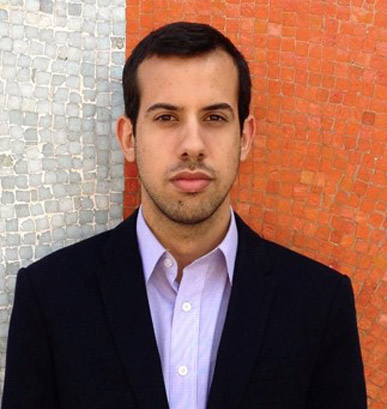
Sebastián Umpiérrez
Sebastián Umpiérrez is a PhD student in Political Science at the Universidad Diego Portales (Chile). He is a Visiting Professor at the Universidad Casa Grande (Ecuador). His main research areas are electoral studies, legislative politics and transnational migration. He has recently published in Latin American Politics and Society, Canadian Journal of Latin American and the Caribbean Studies, and the Interdisciplinary Journal of Human Mobility.

Marie-Christine Fuchs
Marie-Christine Fuchs is a German lawyer (Rechtsanwältin, Berlin). Doctor in Law (Ph.D in Law) from Saarland University of Saarbrücken, Germany. She holds a masters’ degree (LL.M.) in International Public Law, Law of the European Union and Human Rights from the Europainstitut of the aforementioned university and a bachelor degree in French law. For several years she worked as a reseach assistent at Max Planck Institute for comparative and international Private Law in Hamburg, Germany and as an attorney in the international law firm Freshfields Bruckhaus Deringer in Berlin, Germany. Since 2016 she is directing the Rule of Law Programme for Latin America of Konrad Adenauer Foundation in Bogotá, Colombia. She is the author of various publications in International Public Law and Human Rights’ Law.
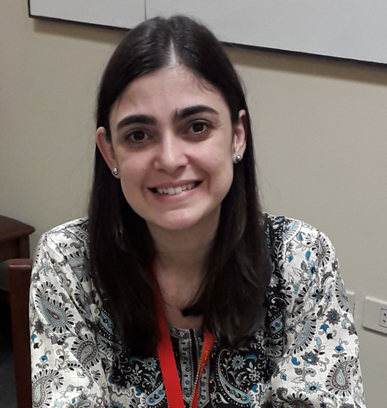
María José Garcia
María José Garcia Ascolani is professor of human rights and international contracting, and she is currently serving as Director of the Legal Studies at the Universidad Autónoma de Asunción. She graduated in Law from the National University of Asunción (2008) and has a Master degree in International Protection of Human Rights from the University of Alcalá de Henares, Spain (2013). She is member of the Latin American Institute of the Ombudsman, President of the Association of Bioethical Studies of Paraguay and Vice President of Graduate Women chapter of the Graduate Women International in Paraguay. She is also specialist in mediation, bioethics and protection of the rights of the children and the family.
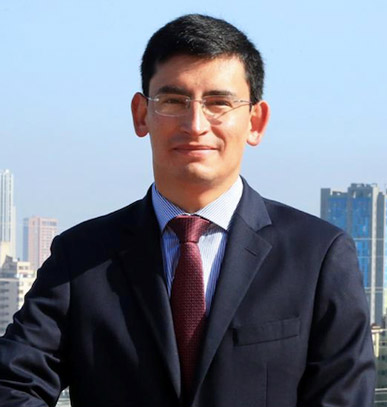
Jorge Ernesto Roa Roa
Jorge Ernesto Roa Roa is a full Professor and researcher at Externado from Colombia University. Doctor in Law summa cum laude (Ph.D. in Law) from the Pompeu Fabra University of Barcelona. He has a masters’ degrees (LL.M.) in Governance and Human Rights from the Autonomous University of Madrid and in Advanced Legal Sciences from the Pompeu Fabra University of Barcelona. He has been a visiting researcher at the University of Trento (Italy) and the Max Planck Institute for Comparative Public Law and International Law (Germany). He obtained the Cádiz Constitution Award (2012) for research in Constitutional Law conferred by the Ministry of Education of Spain and the Higher Council for Scientific Research.
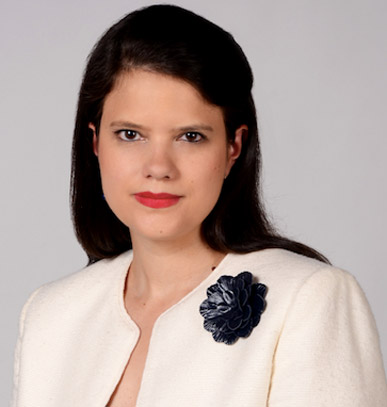
Ariana Macaya
Ariana Macaya holds a PhD in Law at the Paris 1 University Panthéon Sorbonne. She received the War and Peace Institute’s award from the Paris 1 University Panthéon Sorbonne and the Souvenir Français’ Association. She also received the award from Fundación Varenne in 2015. Ariana has been a Professor of Constitutional Law for undergraduate school and a Professor of Territorial Collectivities and Constitutional Procedural Law for graduate school at Paris 1 University. She’s currently a Professor of Introduction to Law, Research Methods and Public International Law for graduate school and Professor of Human Rights International Protection for graduate school at Universidad de Costa Rica. She has collaborated in articles for French legal reviews, such as Les Petites Affiches, La Semaine Juridique and Constitutions.
Ariana is a researcher. Member of the Grupo de Pesquisa Social Desarrollo y Sustentabilidad Socio-ambiental (GPDS), of the JUST-Side (Cyted) network, and of the the CALAS-CIHAC project. Investigator of Estado de la Justica from the Estado de la Nación del Consejo Nacional de Rectores’ project. She is also a member of the Constitutional Law French Association and of the International Society of Public Law (Icon-S).
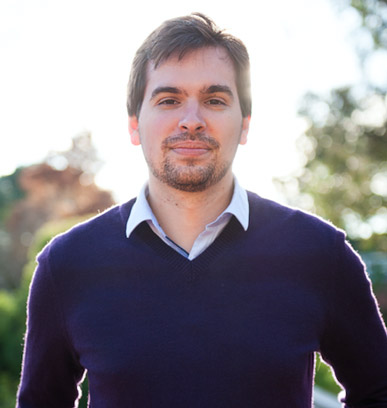
Carlos Arturo Villagrán
Carlos Arturo Villagrán Sandoval obtained his Ph.D (Law) at Melbourne Law School. He also holds a Master in Public and International Law from the same institution and a Licentiate in Juridical and Social Sciences from Universidad Rafael Landívar of Guatemala. He is currently a researcher and lecturer at the Instituto de Investigaciones y Estudios Superiores en Ciencias Jurídicas y Sociales of the Universidad Rafael Landívar. He teaches on topics related to Constitutional Law and Globalisation, Comparative Constitutional Law, Public International Law and Central American Integration Law.
Before commencing his PhD, he was Human Rights Adviser and State Council for the Guatemalan Government within the Project of Historical Memory and Human Rights for Peace of the United Nations Development Programme (UNDP). More recently, Carlos Arturo has litigated at the Guatemalan Constitutional Court, advised human rights groups, and drafted reports for international organizations on matters relating to foreign affairs, rule of law and the protection of human rights in Guatemala.
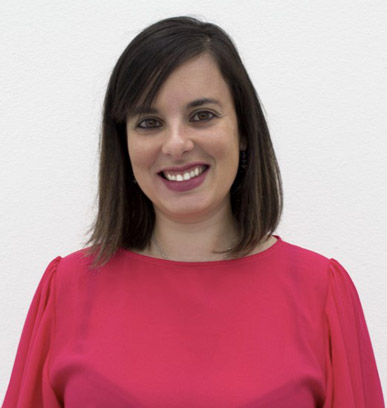
Irene Spigno
Irene Spigno, PhD, is Director of the Center for Comparative Constitutional Studies at the Inter-American Academy of Human Rights from the Autonomous University of Coahuila, Mexico, and Doctor in Research on Comparative Constitutional Law at the University of Siena, Italy.
Dr. Spigno is lecturer of Constitutional Law, Human Rights, International Law, and Comparative Constitutional Law. Her research approach and teaching activities abroad include, among other, Australia, Canada, Mexico, Germany, Namibia, South Africa, Spain and the United Kingdom.
She belongs to the National System of Researchers of Mexico, at First Level. Her lines of research include freedom of expression, particularly hate speech, political freedoms, constitutional justice and multiculturalism in a comparative perspective.
She has participated as speaker in several international conferences in Mexico, Australia, Brazil, United Kingdom, Canada, Norway, Spain and Italy, and currently is involved in several research projects on human rights, political involvement and democracy, and Comparative Constitutional Law.
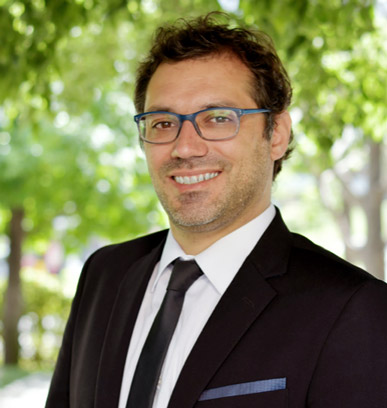
Sergio Verdugo
Sergio Verdugo (JSD, LLM, LLB) is an Associate Professor of Law at Universidad del Desarrollo, Chile. He teaches Constitutional Law and Comparative Law, and he is a researcher of the ‘Centro de Justicia Constitucional.’ His research interests include constitutional theory, the politics of constitutional courts, comparative constitutional law, comparative politics and constitutionalism in Latin America.
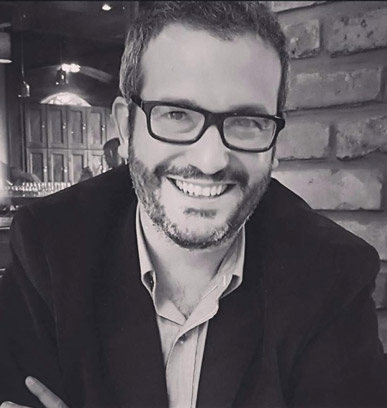
Raul Sanchez-Urribarri
Raul Sanchez Urribarri (PhD, LLM) is a Lecturer in Crime, Justice and Legal Studies at the Department of Social Inquiry, La Trobe University (Melbourne, Australia). His research focuses on democracy, rule of law and comparative judicial studies, with an emphasis on Latin America and Venezuela in particular. His work has been published in journals such as The Journal of Politics, Law and Social Inquiry, the Annual Review of Law and Social Sciences, edited volumes and other outlets. His main project involves assessing the politicisation of the Venezuelan Supreme Court in comparative perspective, and its role in the country’s democratic deterioration.
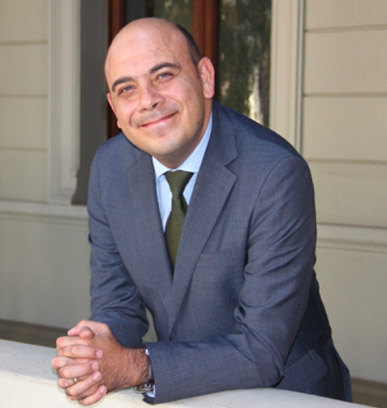
Cristián Villalonga Torrijo
Cristián Villalonga is Assistant Professor at the Pontificia Universidad Católica de Chile School of Law, where he teaches and researches in law and politics, legal history and legal theory. He holds a law degree bestowed by the same university and an LL.M. and a Ph.D. in Jurisprudence and Social Policy by the University of California at Berkeley. Professor Villalonga has received the John Paul II Foundation, Fulbright, and the National Scientific Commission scholarships. His research interests are focused on the legal profession and higher courts with particular focus on Latin America.
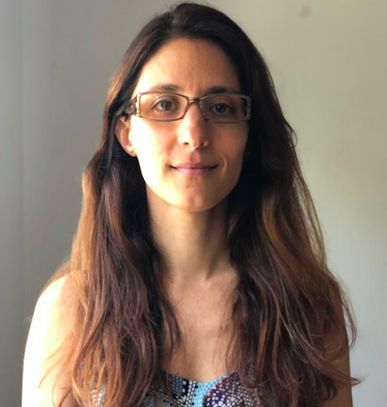
Andrea Castagnola
Andrea Castagnola is Adjunct Professor at Universidad Torcuato Di Tella (Argentina). She holds a Ph.D. in Political Science from University of Pittsburgh and had teaching and research positions in several research universities including: FLACSO (Mexico), Hertie School of Governance (Germany) and University of Bergen (Norway). Her research focuses on democracy, judicial politics, transparency and anti-corruption. Her work has been published in journals such as Journal of Politics, Journal of Politics in Latin America, Política y Gobierno publishing houses as Cambridge University Press and Routledge. His is also consultant for the World Bank and Inter American Development Bank on transparency, democracy and open government.
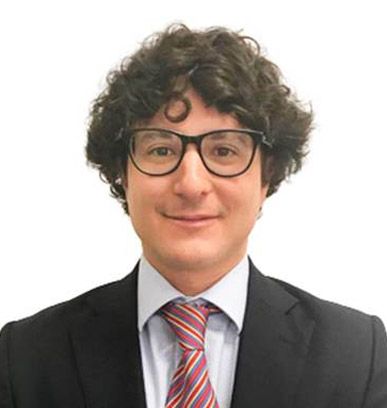
Roberto Niembro Ortega
Roberto Niembro Ortega teaches Constitutional Law at the ITAM and is currently General Director of Institutional Relations at the Mexican Supreme Court of Justice. He is also the co-chair of the Mexican Chapter of the ICON-S.
He received his Ph.D. from the Universidad Complutense de Madrid (with distinction CUM LAUDE and he is a CONACYT Scholar).He holds an LL.M. from NYU (Hauser Global Scholar) as well.
He is the author of Conceptualizing authoritarian constitutionalism (VRÜ 2016) and co-authored with Micaela Alterio Constitutional Culture and Democracy in Mexico. A critical view of the 100-YEAR-OLD Mexican Constitution in Constitutional democracy in crisis? (Oxford University Press 2018, eds. Graber, Levinson and Tushnet).
He is the co-editor of Jurisprudencia del Tribunal Constitucional Español (Porrúa 2012 with Luis Pomed and Luis Alberto Trejo), Constitucionalismo Popular en Latinoamérica (Porrúa 2014 with Micaela Alterio), Constitucionalismo progresista: Retos y perspectivas. Un homenaje a Mark Tushnet (IIJ-UNAM 2016 with Roberto Gargarella), La Suprema Corte y el matrimonio igualitario en México (IIJ-UNAM 2017 with Micaela Alterio), and the forthcoming paper Diez sentencias emblemáticas de la Suprema Corte (IIJ-UNAM with Pedro Salazar and Carlos Alonso).
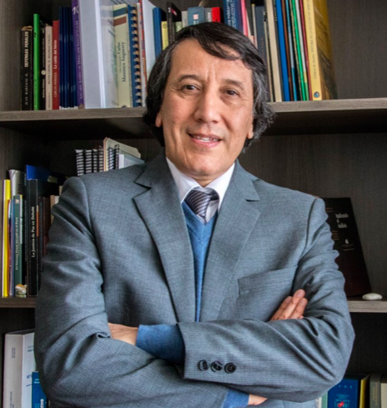
Abraham Siles
Abraham Siles is a lawyer and magister in Constitutional Law, Professor of Constitutional Law at the Pontifical Catholic University of Peru (PUCP), coordinator of the Research Group on Constitutional Law and Fundamental Rights (GIDCYDEF), general editor of the journal Derecho PUCP.
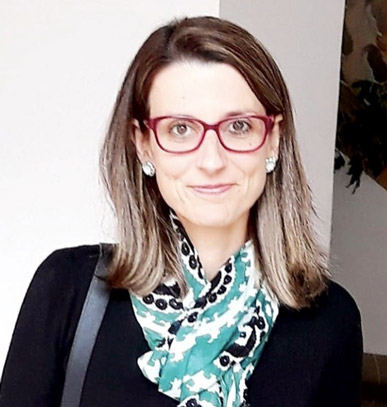
Anna Luisa Walter de Santana
Anna Luisa Walter de Santana is a visiting researcher at Universidad de Los Andes, Colombia (aug. 2018 to feb. 2019). PhD at Law – Pontifical Catholic University of Paraná, Brazil (2016 – at present). Master at Law – Pontifical Catholic University of São Paulo, Brazil (2008). Member of the Global Business and Human Rights Scholars Association.
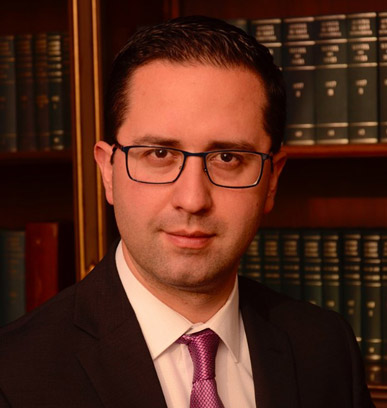
Pablo González Dominguez
Pablo González Domínguez. J.S.D. in International Human Rights Law, University of Notre Dame. LL.M. in International Legal Studies, Georgetown University. LL.B. Universidad Panamericana (Mexico). Staff Attorney at the Inter-American Court of Human Rights. Lecturer on human rights at Universidad Panamericana. Recent works include the book “The doctrine of conventionality control. Between uniformity and legal pluralism in the Inter-American Human Rights System” (Intersentia, 2018).
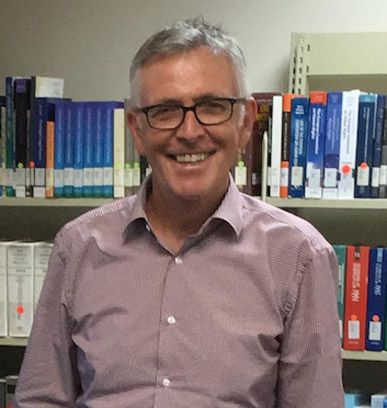
Derek O’Brien
Derek O’Brien is currently a senior lecturer at the Truman Bodden Law School in the Cayman Islands. He was formerly a Reader in Public Law at Oxford Brookes University. He is the author of a monograph on the Constitutional Systems of the Commonwealth Caribbean (Hart Publishing) and has written numerous journal articles and blog pieces on Commonwealth Caribbean constitutional issues.
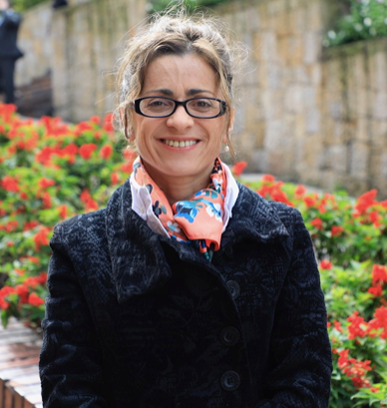
Magdalena Ines Correa Henao
Magdalena Correa is a professor and researcher of Constitutional Law. Lawyer and Specialist in Administrative Law of the Externado de Colombia University and, Constitutional Law and Political Science of the Center for Political and Constitutional Studies of Madrid; Master in Administration and Public Management of the University of Antwerp; PhD in Law of the Charles III University of Madrid. Head of the Constitutional Law Department of the Externado de Colombia University. Associate Judge of the Constitutional Court.
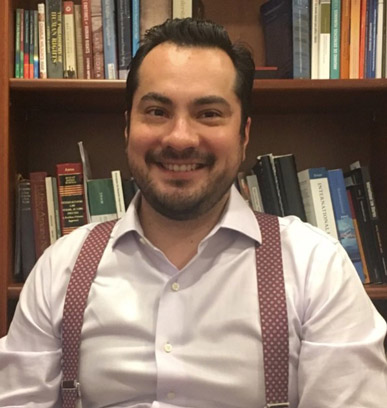
Pier Paolo Pigozzi
Pier Paolo Pigozzi is a Professor of Law at Universidad San Francisco de Quito. He received his LL.B. at Pontificia Universidad Católica del Ecuador, and his LL.M. and J.S.D. in International Human Rights Law at Notre Dame Law School. His areas of academic interest are the constitutional tradition in Latin America, sources and interpretation of Public International Law and the foundations of International Law of Human Rights.
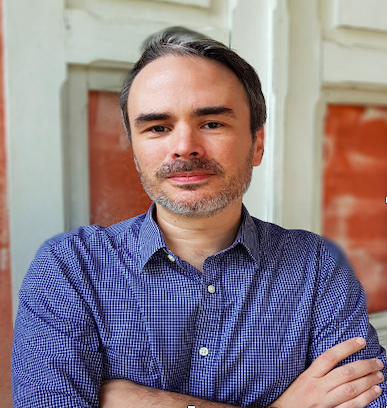
Diego Werneck Arguelhes
Diego Werneck Arguelhes is an Associate Professor of Law at the Insper Institute for Education and Research, in São Paulo (Brazil). Before joining the Insper law faculty, he was Associate Professor (2011-2019) at the Fundação Getulio Vargas Law School in Rio de Janeiro, Brazil (FGV Direito Rio). He is the founding co-director of the Brazilian Chapter of the International Society for Public Law (ICON-S).
His research focuses on judicial politics and judicial behavior, the design of judicial institutions, and constitutional theory. Mr. Arguelhes holds an LL.B. and a M.A. (Public Law) from the State University of Rio de Janeiro (UERJ), and LL.M. and J.S.D. degrees from Yale Law School.
Mr. Arguelhes was a visiting researcher at the Max Planck Institute for Comparative Public and International Law (Heidelberg, Germany) (2016.1), a Visiting Fellow at the Information Society Project at Yale Law School (Spring 2017), and a Hauser Global Law Fellow at NYU Law School (Fall 2017). In the Spring of 2019, he was a Visiting Professor at the University of St. Gallen (Switzerland).
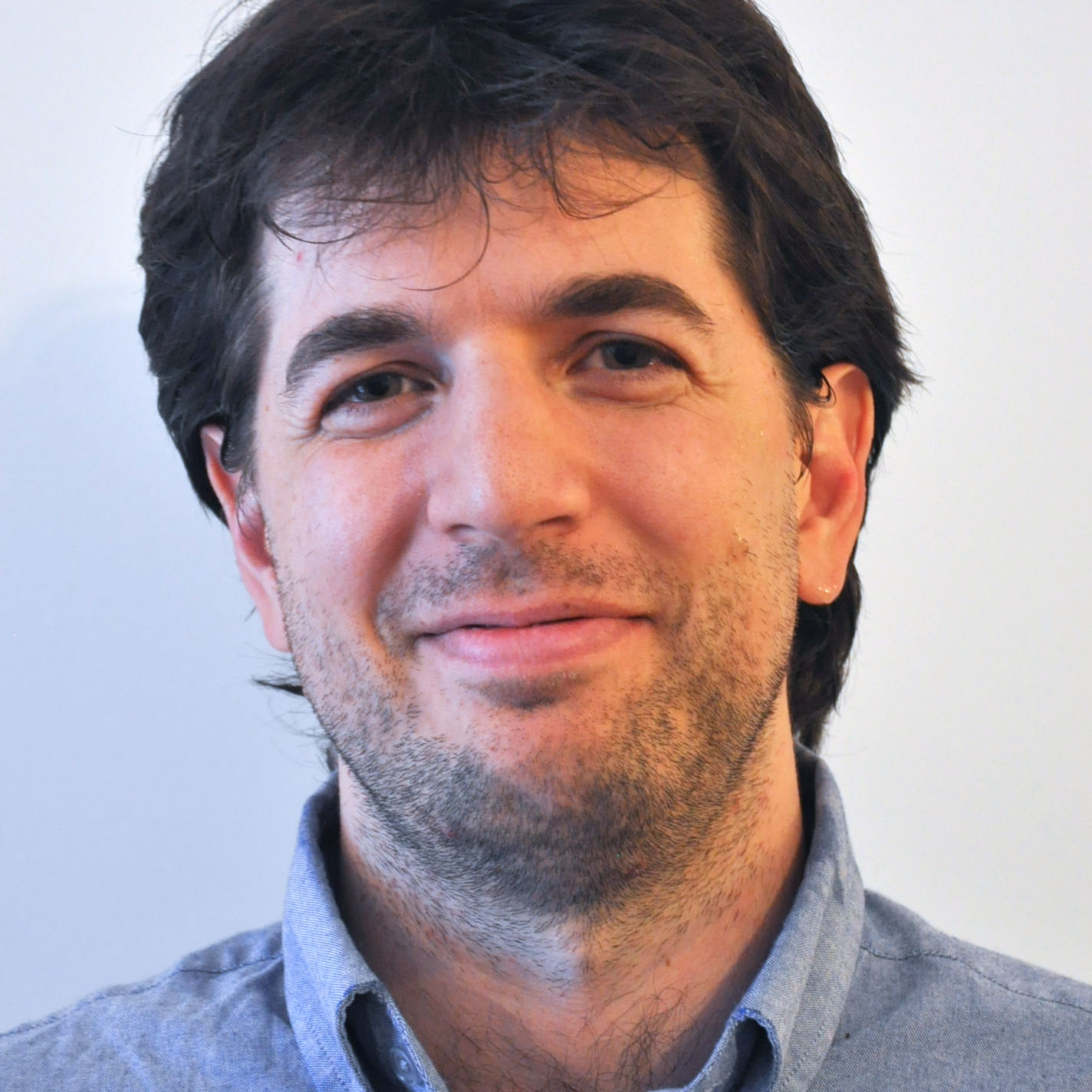
Sergio Muro
Sergio Muro is the co-Director of the Supreme Court Project at Universidad Torcuato Di Tella. He received his LLB from Universidad Nacional de Rosario, an MA in Law & Economics from Universidad Torcuato Di Tella, and an LLM and JSD from Cornell University. His main research interests are Judicial Politics, Insolvency, Corporate Governance, Access to Justice, Judicial Organization, and Comparative Law & Economics. His work has appeared in leading peer-reviewed journals, such as the Journal of Law & Courts, European Business Organization Law Review, The Latin American and Iberian Journal of Law and Economics, Indret and Isonomia. Sergio has served as Legal Expert in an International Arbitration case and is a consultant for the World Bank Group.
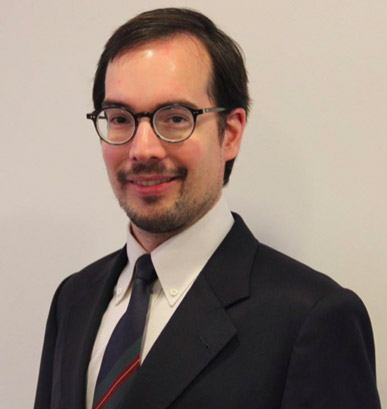
Francisco Javier Urbina
Francisco Javier Urbina is an associate professor at the Faculty of Law of Pontificia Universidad Católica de Chile, where he earned his LLB summa cum laude in 2007, before obtaining an M.St. and a D.Phil. in Law from the University of Oxford. His work is in Constitutional Law, Constitutional Theory, and Human Rights, focusing specially in human rights limitations. His work has been published in journals such as the Oxford Journal of Legal Studies, the American Journal of Jurisprudence, and the Canadian Journal of Law and Jurisprudence. He is the author of A Critique of Proportionality and Balancing (Cambridge University Press 2017) and co-author of Legislated Rights: Securing Human Rights through Legislation (Cambridge University Press 2018).
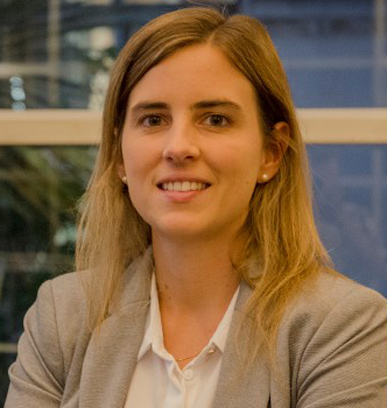
María Paula Garat
María Paula Garat Constitutional Law Professor at Catholic University of Uruguay. Lawyer with degree in Law at Catholic University of Uruguay. Master`s degree in Constitutional Law (with Extraordinary Prize), University of Seville, and now finalizing a Doctor of Law (PhD) at University of Seville. Was a Professional Visitor at Inter-American Court of Human Rights. Author of several papers, chapters, researches, and a book called “The proportionality principle and its empirical testing“, published in Uruguay and Spain. Her main investigation lines are constitutional interpretation, human rights effectiveness and limits, and relation between Constitutional Law with other Law areas.
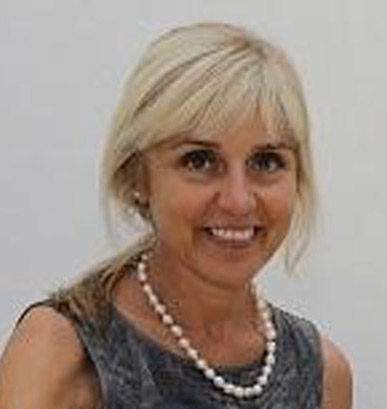
Tania Groppi
Tania Groppi is Full Professor of Public Law at the University of Siena. She is a former legal advisor to the Italian Constitutional Court, Vice-president of the Group of Independent Experts on the European Charter of Local Self-Government of Council of Europe and Legal advisor on constitutional matters of the Congress of Local and Regional Authorities of the Council of Europe.
She has been visiting professor at many Universities, such as the University of Paris I, Toulouse, Poitiers, Aix-en-Provence, Bordeaux (France); Université Catholique de Louvain (Belgium); Centro de Estudios Constitucionales (Madrid); Université de Montréal (Canada); Hebrew University (Israel); Universidad Autónoma de Cohauila (México); FADISP (Brazil).
She has been legal advisor for the Italian Foreign Affairs Minister, for the Tuscany Regional Government, for the Venice Commission of the Council of Europe, and on several projects of Democracy Reporting International.
She was the principle investigator of the Project of National Interest in Italy, on “Framing and Diagnosing the Constitutional Degradation: a Comparative Perspective” (PRIN 2017). She has also directed other projects founded by the European Union, the Italian government, the Tuscany regional government.
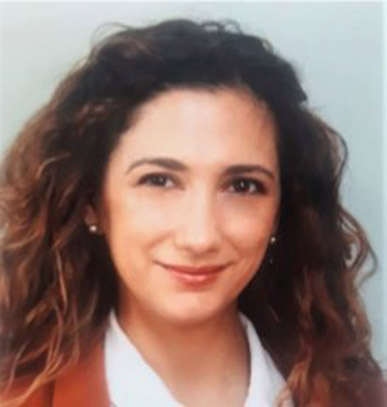
Anna Maria Lecis Cocco Ortu
Anna Maria Lecis Cocco Ortu holds a PhD in Public Law from the Universities of Aix-Marseille (France) and Siena (Italy). Qualified for the functions of Associate Professor in France, she is lecturer and researcher in Comparative Constitutional Law, French Public Law and Italian Constitutional Law, with a teaching and researching experience in France and Italy and a record of internationally published studies in English, French, Italian and Spanish. She is currently Research fellow at the Comparative Law and Politics Center of the University of Toulon, Faculty of Law (CDPC – J.C. Escarras).
She participated as a speaker in several conferences in France, Italy, Norway, Serbia and Spain. Her research interests mainly focus on constitutional justice and judicial protection of fundamental rights, with particular attention to judicial reasoning and motivation and to the participation of amicus curiae and third-parties in public interest litigation.
She is a member of the Editorial Board of the French review La letter d’Italie and the Italian review GenIUS-Juridical Studies on Sexual Orientation and Gender and Section Editor of the Italian review Quaderni Costituzionali and the French review Annuaire International de Justice Constitutionnelle-AIJC.
She is currently involved in several research projects on French Constitutional Justice, Italian Constitutional Justice and Public Interest Litigation.
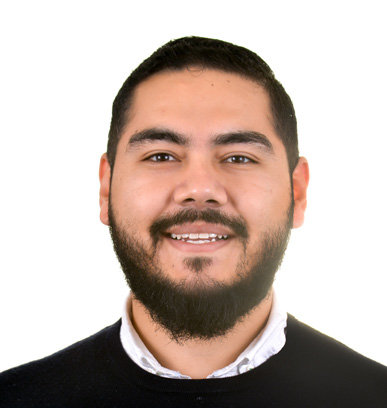
Alfredo Ortega Franco
Alfredo Ortega Franco is a Guatemalan Attorney. He holds an LL.M from Notre Dame University and is a candidate for a master’s in public policy at the University of Oxford as a Chevening/Weidenfeld-Hoffmann scholar. He has previously worked for the Inter-American Court of Human Rights, the Center for Justice and International Law (CEJIL), has been a consultant for several national and international NGO’s, and worked for the Guatemalan Ombudsman office.
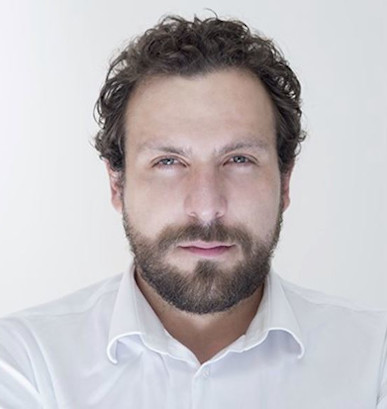
Dr. Juan C. Herrera
Dr. Juan C. Herrera is a Postdoctoral Visiting Research Fellow at the Max Planck Institute for Comparative Public Law and International Law, Heidelberg. He is a former Law Clerk of the Constitutional Court of Colombia and his contribution for this project is a combination of his involvement in the academia and the mentioned tribunal. Juan’s research experience and areas of practice encompass national and supranational issues related to fundamental rights, democracy and regional integration in Latin America.

Rosa Llique Ramírez
Rosa Llique Ramírez is a lawyer from the Pontificia Universidad Católica del Perú and holds a masters’ degree in Gender Studies from the same university. Currently, she is finishing a program in Bioethics at the Universidad Antonio Ruiz de Montoya and works in research management, which has as its purpose the editing of the Derecho PUCP law review. Her research interests include topics related to interdisciplinary studies.
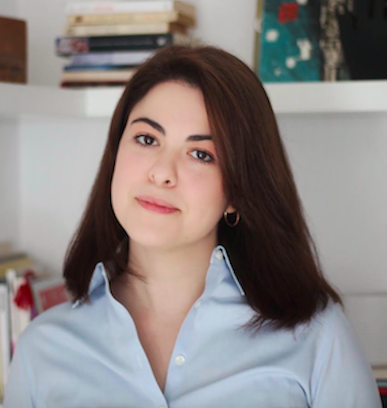
Gisela Ferrari
Gisela Ferrari is a PhD Candidate at the Catholic University of Argentina. She is currently studying the influence of the European Court of Human Rights on the Supreme Court of Argentina. Her research interests are in human rights law, public international law, and constitutional law, especially judicial dialogue and cross‐jurisdictional constitutional interactions. Gisela is a Lecturer at the Catholic University of Argentina, where she teaches constitutional law. She is Co-Editor in Chief of Revista Internacional de Derechos Humanos. She has been a guest researcher at the Max Planck Institute for European Legal History and at Courts Copenhagen, as well as a visiting fellow with the Laureate Project in Comparative Constitutional Law at Melbourne Law School. Previously, Gisela was at the London School of Economics and Political Science, where she completed an LL.M. in Public Law.
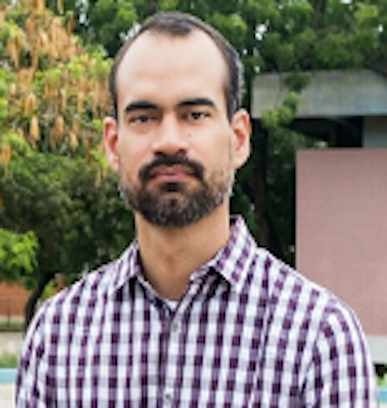
Juan Berríos Ortigoza
Juan Berríos Ortigoza is professor of constitutional law and associate researcher at the Institute of Political Studies and Public Law of the Universidad del Zulia (Venezuela). Doctor in Law from the National Distance Education University (UNED, Spain). He has a masters’ degree in Political Science and Public Law from the University of Zulia. His research focuses on identifying –in matters of fundamental rights, guarantees and State organization– jurisprudential lines of the Constitutional Chamber of the Venezuelan Supreme Court of Justice, and analyzing their development in the framework of politicization of justice and judicialization of politics. He is also co-founder of the Commission for Human Rights of the State of Zulia (Codhez), a civil society organization, where he has prepared reports on the general situation of human rights in the Zulia region.
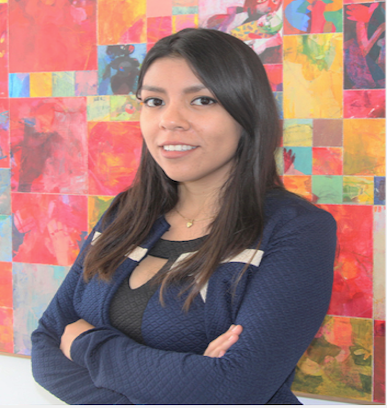
María Alejandra Espino Layza
María Alejandra Espino Layza is a lawyer by the Pontificia Universidad Católica del Perú (PUCP). She obtained a masters’ degree in Human Rights at the same university. Part-time assistant lecturer of the PUCP Law Department in the courses of Family Law Clinic, Introduction to Legal Science, and Disability Law Clinic. Part-time assistant lecturer of the General Studies Department, in the course of Citizenship and Social Responsibility. Strategic litigation lawyer of the Academic Office of the PUCP Law Faculty. She is in charge of Unicxs Legal Office that specializes in the defense of the transsexual people’s rights. In this office, she handles cases involving name changes, proceedings against acts of discrimination, and also focuses on carrying out policy advocacy.
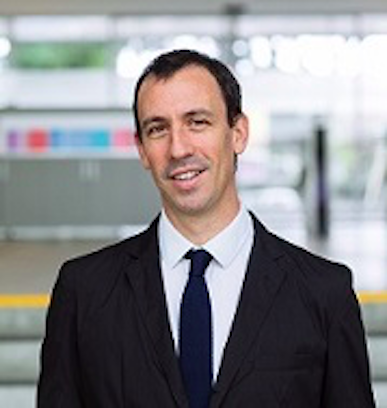
Alejandro Chehtman
Alejandro Chehtman is Professor of Law at Universidad Torcuato Di Tella (Argentina) and a Fellow at the Argentine National Research Council (CONICET). His work has been published in the European Journal of International Law, Legal Theory, Journal of International Criminal Justice, Stanford Journal of International Law, Leiden Journal of International Law, Oxford University Press, among others. Alejandro holds a law degree from the University of Buenos Aires, and an MSc in Political Theory and a PhD in Law from the LSE. After Law School he clerked for Justice Martín Irurzun at the Federal Criminal Appeals Court, in Buenos Aires. In 2014-5 he was Marie Sklodowska Curie Fellow at the Faculty of Laws at UCL. He has held research and visiting positions at the LSE, UCL, Harvard Kennedy School, LUISS, and the University of Girona. He is in the board of editors of the Journal of International Humanitarian Legal Studies and is Academic Editor of Revista Latinoamericana de Derecho Internacional (LADI).
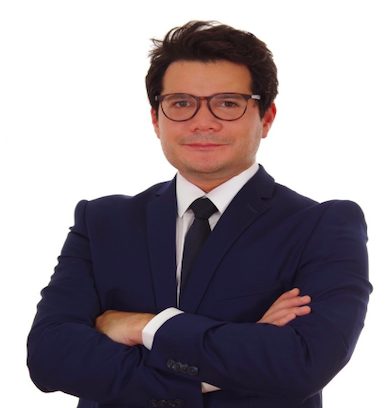
Juan Pablo Irrazabal
Juan Pablo Irrazabal is a lawyer who studied at the Catholic University of Asunción. He received a Master of Laws from the Rheinische Friedrich-Wilhelms-Universität Bonn in the field of Criminal law. He is currently a doctoral candidate at the same university at the Chair of Criminal Law and International Criminal Procedure Law. He is a scholarship holder of the Konrad Adenauer Foundation. His areas of interest are especially Criminal law, Criminal procedure, Constitutional law and Public International law.
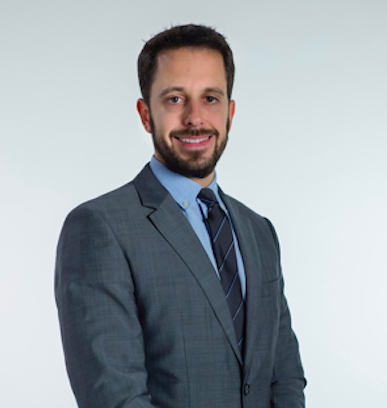
Ivar Hartmann
Ivar Hartmann is an Associate Professor of Law at Insper Institute for Education and Research, in São Paulo (Brazil). Before joining the Insper law faculty, he was an Assistant (2013-2017) and Associate Professor (2018-2020) at the Fundação Getulio Vargas Law School in Rio de Janeiro, Brazil (FGV Direito Rio), where he coordinated the Center for Technology and Society (CTS-FGV) and the Legal Data Science Nucleus. His teaching and research interests cover topics of Cyberlaw, Empirical Legal Research and Constitutional Law. Ivar holds an MsC from the Catholic University of Rio Grande do Sul, Brazil, an LL.M. from Harvard Law School and an S.J.D. from the State University of Rio de Janeiro.
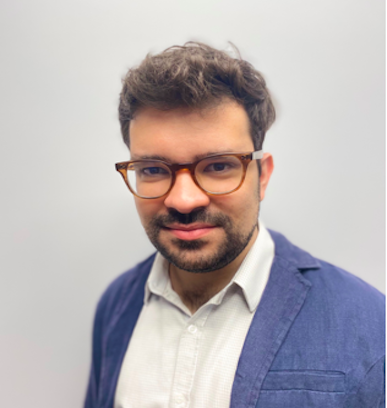
Rafael Bellem de Lima
Rafael Bellem de Lima is full-time Professor at Insper – Institute for Education and Research, in São Paulo (Brazil), where he coordinates the Undergraduate Law Program. He is a Dr. jur. Candidate at Christian-Albrechts Universität Kiel, Germany, and University of São Paulo, Brazil, (cotutelle partnership) and holds a LL.B. and a MsC in Constitutional Law from the University of São Paulo. His teaching and research interests cover topics of Balancing and Proportionality, Legal Reasoning, Human Rights and Constitutional Law.